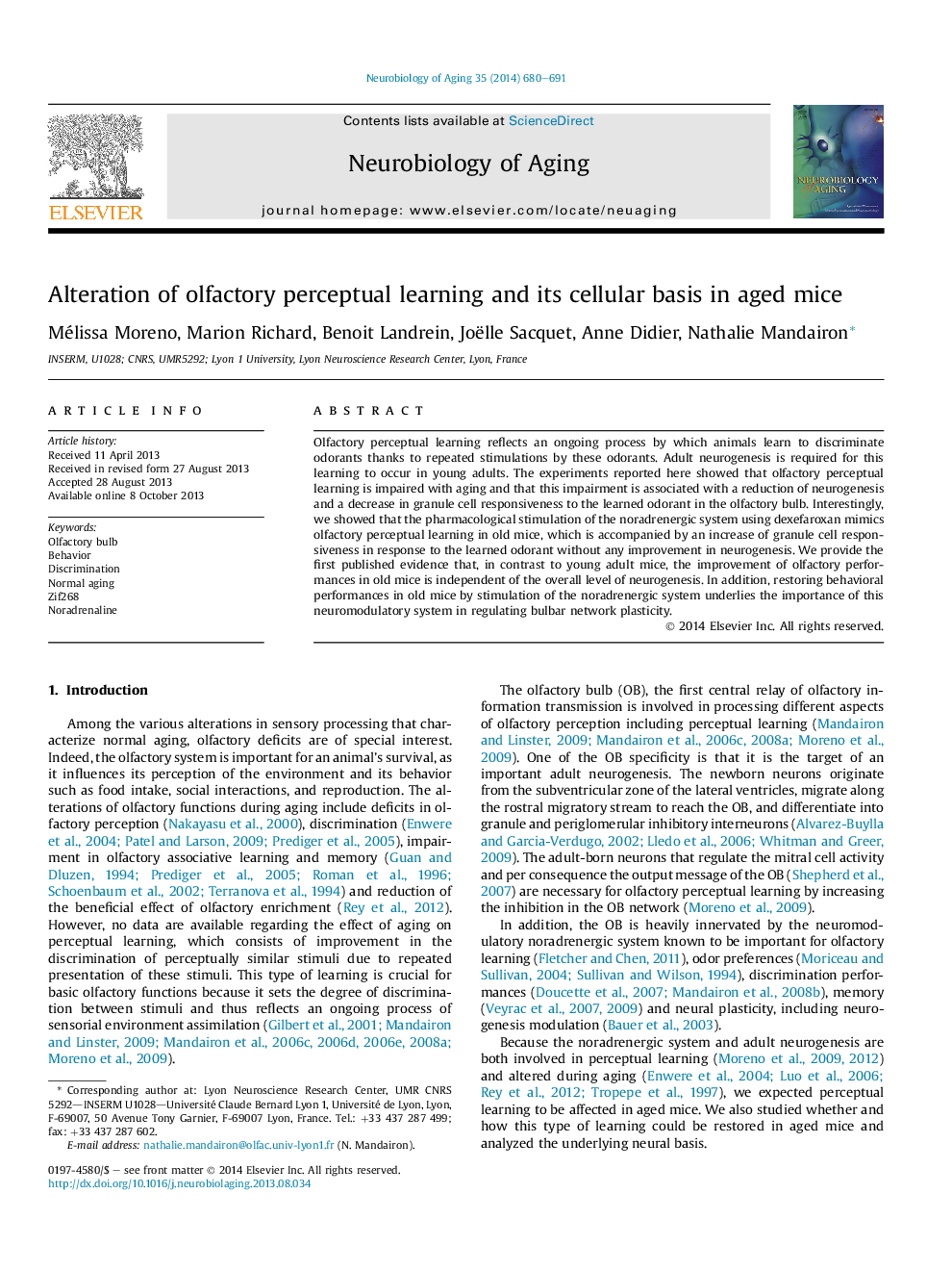| Article ID | Journal | Published Year | Pages | File Type |
|---|---|---|---|---|
| 6806321 | Neurobiology of Aging | 2014 | 12 Pages |
Abstract
Olfactory perceptual learning reflects an ongoing process by which animals learn to discriminate odorants thanks to repeated stimulations by these odorants. Adult neurogenesis is required for this learning to occur in young adults. The experiments reported here showed that olfactory perceptual learning is impaired with aging and that this impairment is associated with a reduction of neurogenesis and a decrease in granule cell responsiveness to the learned odorant in the olfactory bulb. Interestingly, we showed that the pharmacological stimulation of the noradrenergic system using dexefaroxan mimics olfactory perceptual learning in old mice, which is accompanied by an increase of granule cell responsiveness in response to the learned odorant without any improvement in neurogenesis. We provide the first published evidence that, in contrast to young adult mice, the improvement of olfactory performances in old mice is independent of the overall level of neurogenesis. In addition, restoring behavioral performances in old mice by stimulation of the noradrenergic system underlies the importance of this neuromodulatory system in regulating bulbar network plasticity.
Related Topics
Life Sciences
Biochemistry, Genetics and Molecular Biology
Ageing
Authors
Mélissa Moreno, Marion Richard, Benoit Landrein, Joëlle Sacquet, Anne Didier, Nathalie Mandairon,
